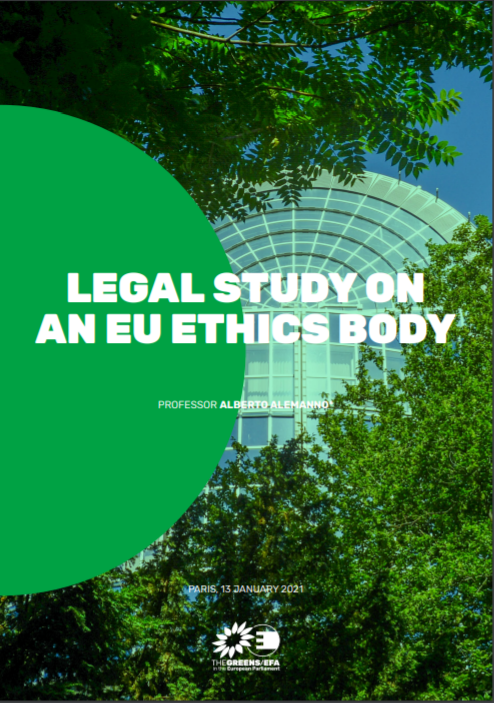Ethics Body - Why?

Good lobbying rules are not enforced!
Around 35,000 lobbyists in Brussels try to influence European policy in the interests of their clients. Lobbying in itself is not a bad thing, as long as it is transparent and follows the rules. In order to prevent hidden influence, conflicts of interest or even EU officials or politicians changing sides and becoming lobbyists to represent private interests, there are rules in place. Some lobby meetings must be made public. Former EU commissioners must adhere to “cooling-off periods”. The rules on this in Brussels are among the best in Europe. But there is a huge problem: they are often enforced laxly, sometimes even not at all. Usually, each institution controls itself. In other words, former colleagues often judge whether everything was above board when they switched sides from the EU institution to the business world.
Scandals destroy citizens trust in Europe’s democracy
When the rules are broken, scandals occur. They ruin trust in European politics. Three examples:
- Former EU Commission President Jose Manuel Barroso moved to the investment bank Goldman Sachs after leaving his EU top job. He promised not to lobby his former colleagues. Only a little later he broke this promise – without consequences.
- Since leaving the EU Commission in December 2019, the former German EU Commissioner Günther Oettinger has taken up 13(!) subsequent jobs and founded his own consulting firm. Many of his new employers are registered lobbyists in Brussels. All this is happening during his “cooling-off” period of two years.
- The former Dutch EU Commissioner Neelie Kroes (responsible among other things for Digital Affairs) was already criticised during her term of office because of possible conflicts of interest. Shortly after leaving the EU Commission, she joined the Uber.
When people get the impression that EU policy is for sale and lobbyists can write their own laws, they turn away. This is a danger for democracy and plays into the hands of eurosceptics and populists. With the new EU budget and the Corona aid, Europe is taking more money in its hands than ever before. This great responsibility also means that we must ensure that this money is spent in the interest of the general public and does not favour wealthy individual interests.
An Ethics Body that consistently enforces lobbying rules
In order to ensure that the rules are respected in Brussels – and that violations of the rules are consistently sanctioned, we Greens have proposed an independent ethics body. This is now also supported by the EU Commission. But what should such an investigative authority look like? And what competences should it have?
I have now started work on this as rapporteur in the European Parliament and will soon present a first proposal. On Wednesday, I discussed the results of a first “feasibility study” together with EU Commissioner Vera Jourova. According to this study, the three core elements of such an ethics authority should be:
- Independence: Instead of the current self-control of the institutions, we want an independent group of experts who are committed to the credible implementation of rules, not to their (former) colleagues or superiors.
- One for all: Where up to now every EU institution has its own ethics officers who interpret the same rules differently, we want one authority that is responsible for EU commissioners, MEPs, all EU employees and all other institutions and agencies that want to join.
- Effective enforcement: In order to ensure that sanctions are actually imposed in cases of exceptionally serious breaches of the rules, ethics experts should not only be allowed to check but also to sanction. Ombudsman and courts can review these sanctions.
You can find the detailed discussion and our study below.
https://www.youtube.com/watch?v=g54PuJ9E2YY
https://extranet.greens-efa.eu/public/media/file/9012/6725
Summary:
https://extranet.greens-efa.eu/public/media/file/9012/6735
https://extranet.greens-efa.eu/public/media/file/9012/6733

